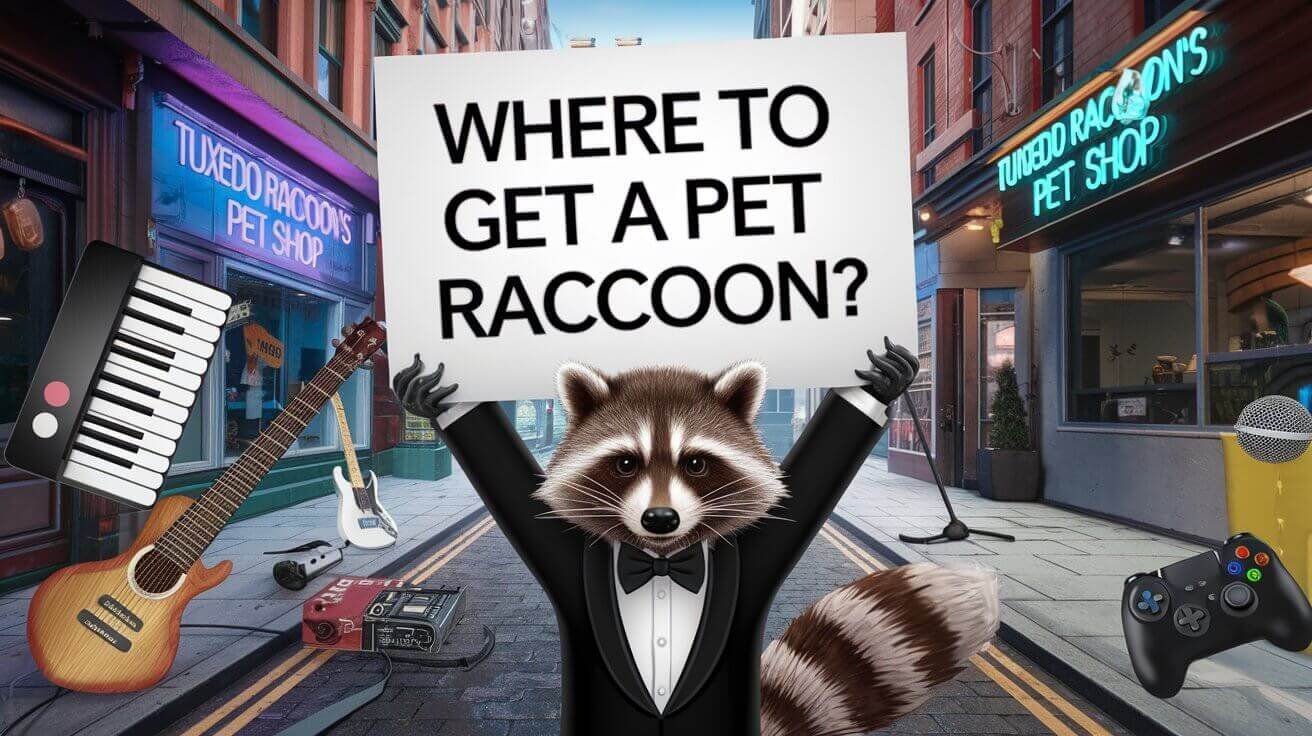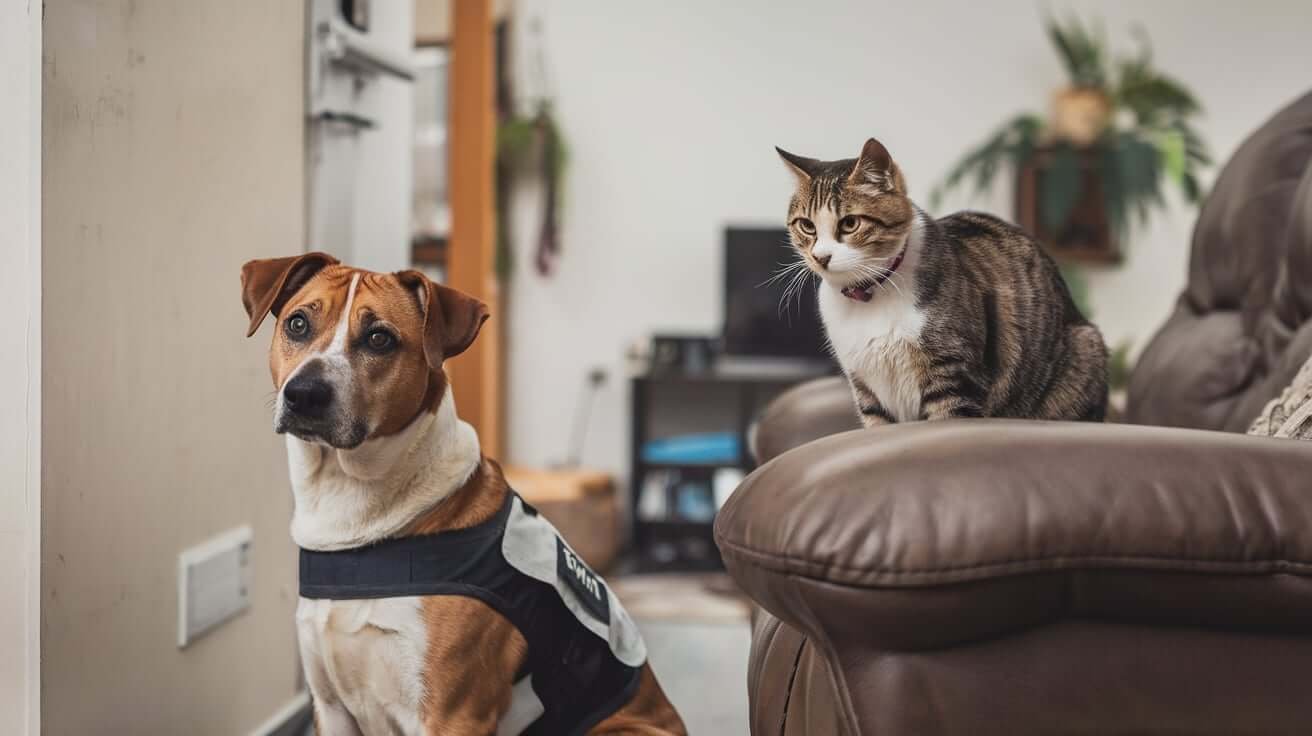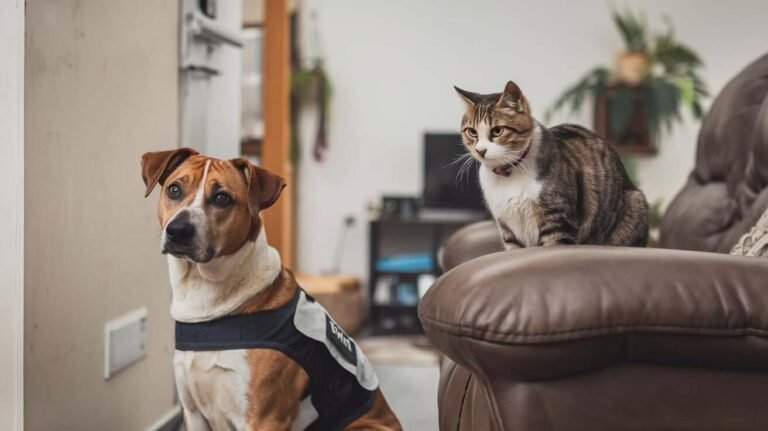Where to Get a Pet Raccoon? 3 Powerful Legal Considerations
Raccoons are fascinating animals, known for their curious nature, intelligence, and playful personalities. Many people find themselves intrigued by the idea of owning a pet raccoon, but there are many important considerations that come with keeping such an exotic animal. Where to Get a Pet Raccoon? 3 Powerful Legal Considerations for Owning a Pet Raccoon highlights the legal concerns, practical care requirements, and the responsibilities involved in acquiring and caring for a pet raccoon.

Why wondering where to Get a Pet Raccoon?
If you’ve ever wondered, “Where can I get a pet raccoon?” you’re not alone. With their adorable faces and mischievous behavior, raccoons can seem like the perfect pet. However, owning a pet raccoon isn’t as simple as picking one up at a pet store. Before considering this unique pet, it’s crucial to understand where to get a pet raccoon, the legal requirements, and the care involved. Raccoons are wild animals and require specialized care that differs significantly from domestic pets like cats and dogs.
Legal Considerations for Owning a Pet Raccoon
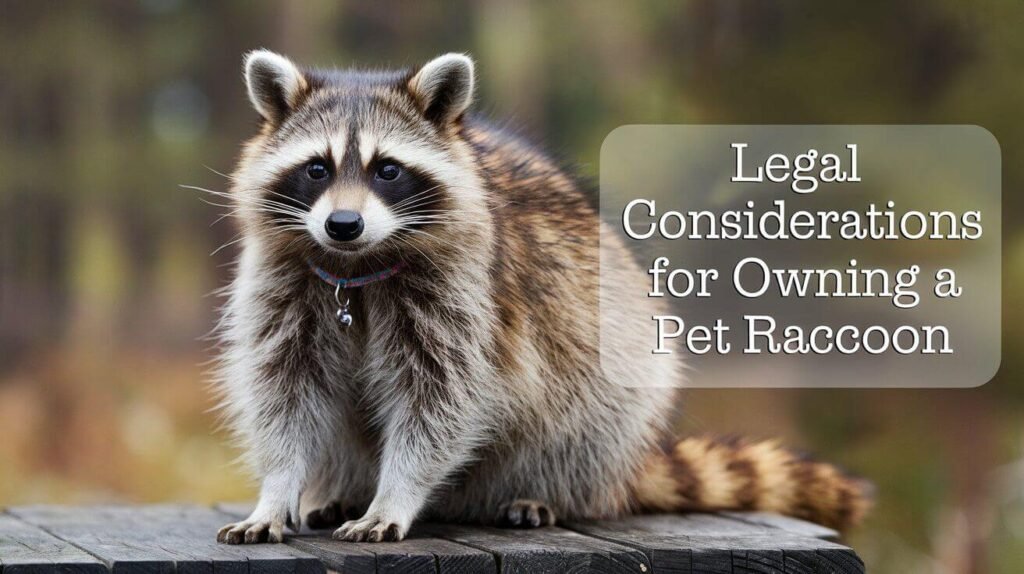
Before even thinking about where to get a pet raccoon, it’s essential to know whether it’s legal to keep one in your area. The legality of owning a pet raccoon varies depending on your location and the regulations set by your local government, state, or country.
Research Local Laws
In many states and countries, raccoons are classified as wild animals, and owning one may be prohibited or heavily regulated. Some states require a special wildlife license to keep a raccoon as a pet, while others do not allow raccoons to be kept as pets under any circumstances. It’s crucial to check with local wildlife agencies or government websites to determine if owning a pet raccoon is legal in your area.
Permits and Licensing
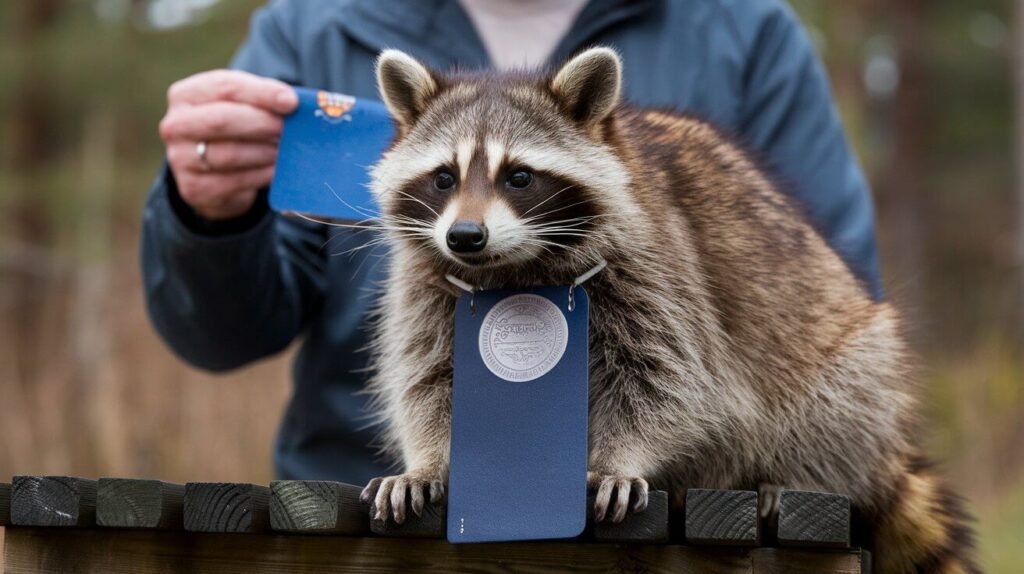
If raccoon ownership is legal in your location, you may still need to apply for a permit or license to keep one. These permits typically come with specific requirements, such as regular inspections of your living conditions, proof of proper care, and sometimes proof that the animal was legally obtained. Some regions require a wildlife rehabilitation license or exotic animal permit, while others may impose age restrictions or other regulations.
Ethical and Conservation Concerns
Raccoons are wild animals, and removing them from their natural habitats can have negative effects on the local ecosystem. Wild raccoons are part of the food chain and contribute to maintaining the balance of their environment.
Additionally, raccoons may suffer from being kept in captivity if their needs are not properly met. Before acquiring a pet raccoon, consider the ethical implications and whether it’s in the animal’s best interest to be kept as a pet.
Where to Get a Pet Raccoon
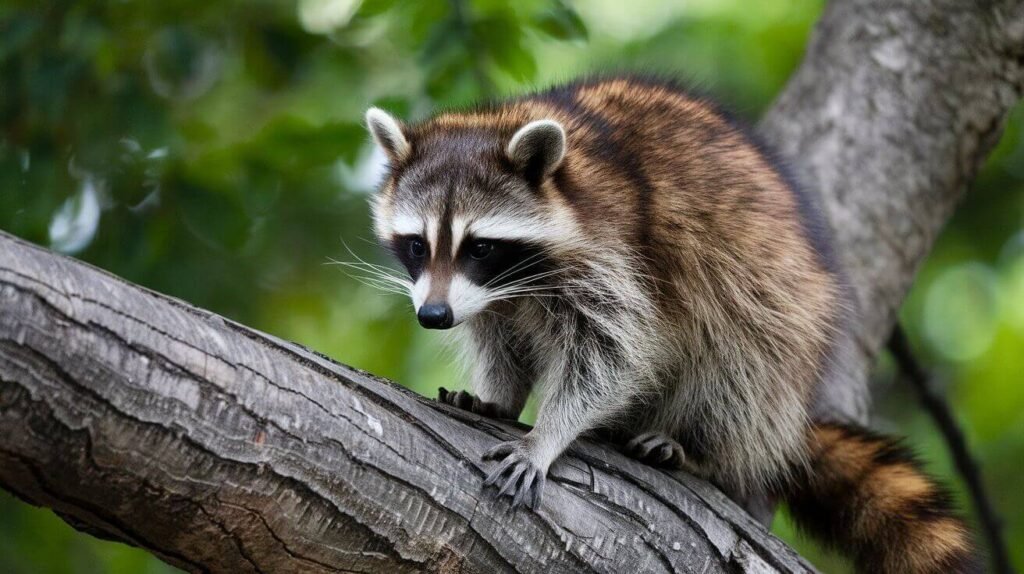
Once you’ve confirmed that it’s legal to own a raccoon in your area, you may wonder where to find one. There are several places where people can acquire a pet raccoon, but each source comes with its own set of pros and cons.
Reputable Breeders
A reputable breeder is one of the best sources for obtaining a pet raccoon. These breeders specialize in raising raccoons in a controlled environment and ensuring that the animals are healthy and accustomed to human interaction. They may also provide guidance on raising and caring for a pet raccoon.
- Pros: Reputable breeders typically breed raccoons that are hand-raised and socialized, making them easier to integrate into a home.
- Cons: Raccoons are still wild animals, and even those bred in captivity can display behaviors like territorial marking, foraging, and climbing.
When looking for a breeder, be sure to do thorough research. Ask questions about their breeding practices and the health of the animals, and request references from previous buyers. Avoid purchasing raccoons from unlicensed or unethical breeders who may prioritize profit over the well-being of the animals.
Also Read: How does pet grooming relate to agriculture?
Wildlife Rescues and Sanctuaries
Another option for acquiring a pet raccoon is to adopt from a wildlife rescue or sanctuary. Some organizations focus on rehabilitating orphaned or injured wild raccoons and offer them for adoption once they are healthy and socialized.
- Pros: Adopting from a rescue is a more ethical choice, as you’re giving a raccoon a second chance at life. Rescues may also have raccoons that are already accustomed to living in captivity.
- Cons: The availability of raccoons for adoption may be limited, and the animals may not always be available for private ownership.
Contact local wildlife rescue organizations to inquire about adoption programs and availability. Many rescues also provide resources and education for first-time owners on how to properly care for their new pet.
Animal Auctions and Exotic Pet Fairs
Some people may try to find raccoons through animal auctions or exotic pet fairs, but this method comes with significant risks. The animals at these events may not be treated well, and there’s no guarantee that they were legally sourced or bred. You may also encounter raccoons that are not socialized and have behavioral problems.
- Pros: Exotic pet fairs may provide an opportunity to view several animals and interact with them before making a purchase.
- Cons: There’s a higher chance of purchasing an animal from questionable sources or without proper health guarantees.
If you choose to explore this route, it’s essential to ensure the animals are legally sourced and that the seller can provide proper documentation and care history.
Where to Get a Pet Raccoon? The Responsibilities of Owning a Pet Raccoon

Owning a raccoon comes with a unique set of responsibilities. Raccoons are highly intelligent, curious, and active creatures that require specialized care. Before obtaining a pet raccoon, it’s crucial to prepare for the challenges involved.
Habitat and Space Requirements
Raccoons are active and curious creatures that need plenty of space to roam. A pet raccoon should never be confined to a small cage or crate. Instead, they need a spacious indoor environment and an outdoor enclosure where they can climb, explore, and dig.
- Indoor Enclosures: A secure indoor space should be large enough for your raccoon to move around and engage in natural behaviors. This can be a spacious room or a large indoor pen.
- Outdoor Enclosures: If you plan to keep your raccoon outdoors, you must build a secure, escape-proof enclosure. Raccoons are known for their ability to escape from enclosures, so double-check that the structure is safe.
Ensure the habitat is well-stocked with toys, climbing structures, and other enrichment activities to keep your raccoon mentally stimulated and active.
Diet and Nutrition
Raccoons are omnivores, meaning they need a varied diet that includes fruits, vegetables, proteins, and grains. Their diet should closely mimic what they would eat in the wild, with a balance of both plant and animal-based foods.
- Fruits and Vegetables: Fresh fruits and vegetables like apples, carrots, and leafy greens should be a staple of their diet.
- Protein: Raccoons also need animal-based protein, such as cooked chicken, eggs, or lean meats.
- Commercial Raccoon Food: Some pet stores sell specialized raccoon food, but it should only be a supplement to a varied diet, not the primary food source.
It’s essential to avoid feeding your pet raccoon processed human foods or anything toxic to them, such as chocolate, caffeine, or onions.
Socialization and Enrichment
Raccoons are highly social animals, and they need constant interaction with their human owners. They may form strong bonds with their family members and require attention and affection to prevent behavioral problems. It’s also important to provide enrichment activities such as puzzle toys, climbing structures, and foraging opportunities to keep them mentally stimulated.
Without adequate mental stimulation and interaction, raccoons may become destructive or develop negative behaviors like aggression or excessive vocalization.
Where to Get a Pet Raccoon? Common Challenges of Owning a Pet Raccoon
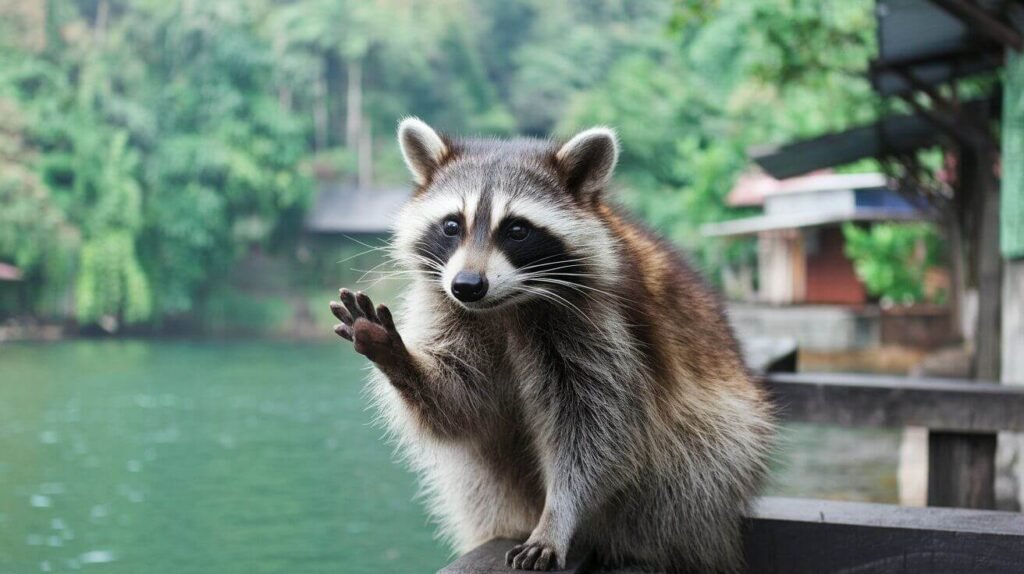
While raccoons can make fascinating pets, they come with their own set of challenges. Understanding these challenges before getting a pet raccoon can help you prepare for the responsibility.
Behavioral Issues
Despite being social, raccoons are wild animals and may display unpredictable behaviors. They are known for being mischievous and can often get into things they shouldn’t, such as trash or cabinets. They may also become territorial and exhibit destructive behaviors, such as chewing or scratching.
Health Risks
Raccoons can carry diseases such as rabies, leptospirosis, and parasites like roundworms. It’s important to take precautions to minimize health risks, such as regular veterinary checkups, vaccinations, and parasite control. Make sure to find a veterinarian who specializes in exotic or wildlife species.
Long-Term Commitment
Raccoons can live for up to 20 years in captivity, so adopting one is a long-term commitment. You should be prepared for the time, effort, and financial costs involved in raising a raccoon for the duration of its life.
Where to Get a Pet Raccoon? Alternatives to Owning a Pet Raccoon
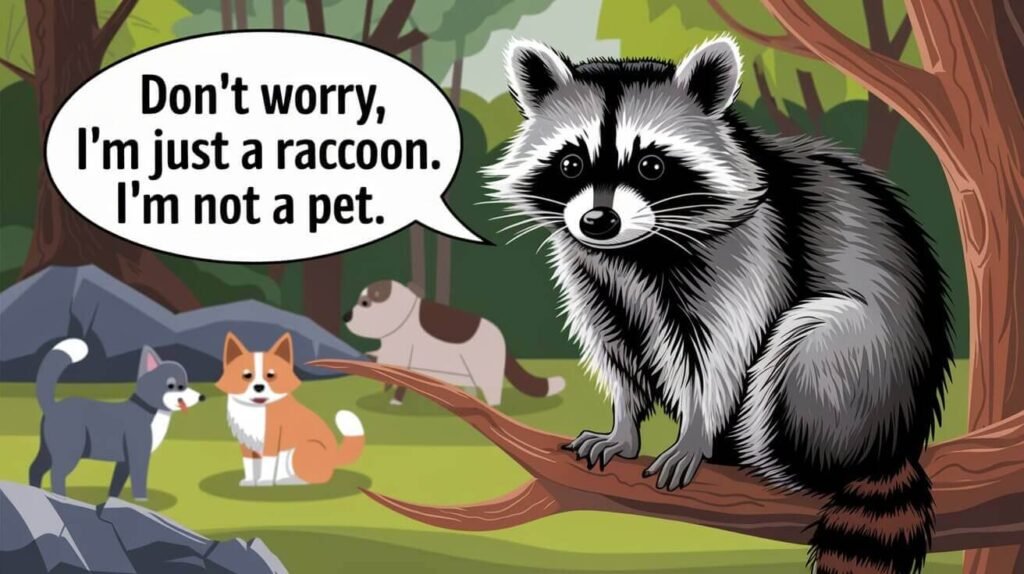
While raccoons can make fascinating and unique pets for the right person, they are not for everyone. If you’re interested in the companionship of an animal with similar qualities but more suited to a domestic environment, consider these alternatives:
Adopt a Domestic Pet with a Similar Personality
If you’re drawn to raccoons for their intelligence and curiosity, you might enjoy other animals that possess similar traits but are easier to care for. Some potential alternatives include:
Ferrets: Ferrets are curious, playful, and energetic, much like raccoons. They can be litter trained and require a lot of interaction and stimulation.
Rats: Highly intelligent and social, rats form strong bonds with their owners and can be trained to perform tricks, making them a great choice for someone who enjoys interacting with clever pets.
Cats: While cats are not as active or mischievous as raccoons, some breeds, like Bengals or Abyssinians, are known for their curiosity and playful nature.
These animals may offer some of the same satisfaction of having a smart, engaging pet without the significant challenges of owning a raccoon.
Volunteer at a Wildlife Sanctuary
If you’re not sure about having a pet raccoon in your home, consider volunteering at a wildlife sanctuary or rehabilitation center. Many wildlife organizations care for orphaned or injured raccoons, and volunteering with these animals can give you a unique opportunity to interact with them while learning more about their care needs. This can provide the satisfaction of helping raccoons in need, without the responsibility of keeping one as a pet.
Support Raccoon Conservation Efforts
If you’re drawn to the idea of owning a raccoon but concerned about the ethical and legal challenges, consider supporting conservation organizations that focus on raccoon protection and habitat preservation. By contributing to conservation efforts, you can help ensure that wild raccoons continue to thrive in their natural environments and are not taken from the wild to be kept as pets.
Where to Get a Pet Raccoon? Resources for Future Raccoon Owners
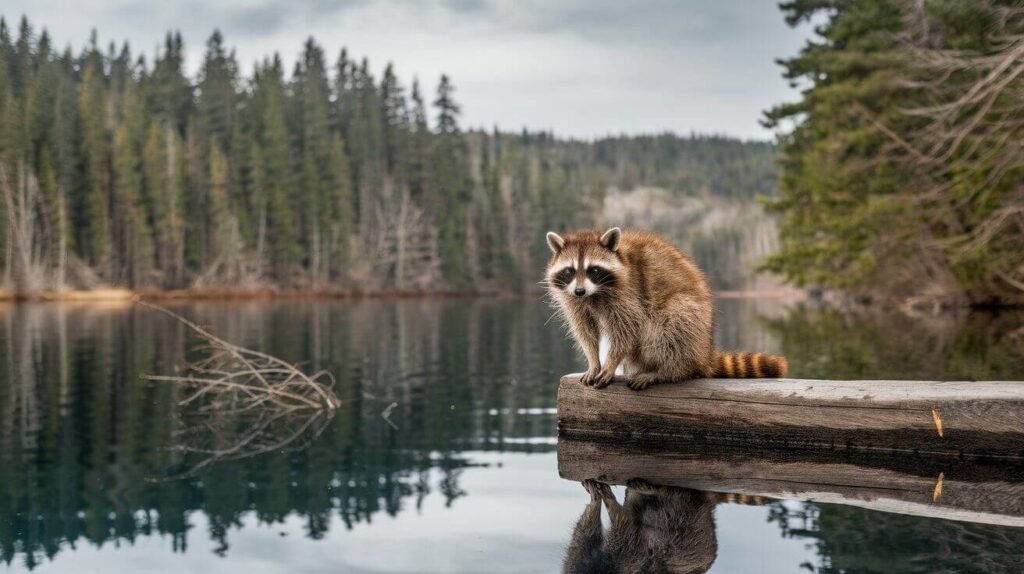
If you are seriously considering adopting a pet raccoon, there are several resources that can help guide you through the process and ensure that you’re making an informed decision:
- Wildlife Rescue Centers and Sanctuaries: Many rescue organizations offer education on raccoon care and sometimes have raccoons available for adoption. They can also provide valuable insight into the challenges of raccoon ownership.
- Veterinarians Specializing in Exotic Pets: Not all veterinarians are equipped to handle raccoons, so it’s crucial to find one with experience in treating exotic pets. They can offer advice on the best care practices, vaccinations, and potential health issues.
- Raccoon Owner Forums and Communities: Online forums and social media groups for exotic pet owners can offer valuable advice from people with firsthand experience. These communities often share tips on raccoon behavior, diet, and other aspects of raccoon care.
- Books and Articles on Raccoon Care: There are numerous books and online resources written by wildlife experts and experienced raccoon owners that can provide you with more in-depth information on how to care for a pet raccoon.
Where to Get a Pet Raccoon? How much does a pet raccoon cost?
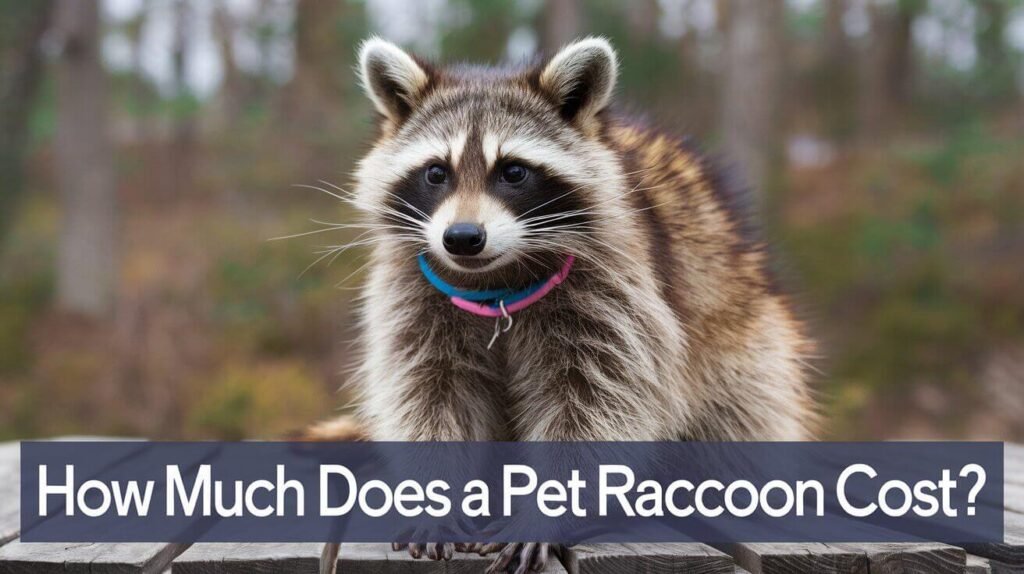
The cost of a pet raccoon can vary greatly depending on factors such as location, breeder, and the raccoon’s age. On average, a pet raccoon can cost anywhere from $200 to $1,000. Baby raccoons tend to be more expensive, especially if they come from reputable breeders or rescue organizations. Additionally, you should consider the ongoing costs for their care, including food, veterinary bills, and enclosure maintenance.
Where to Get a Pet Raccoon? Can I get a raccoon as a pet?
Yes, it is possible to get a raccoon as a pet, but there are important factors to consider before making this decision. In some areas, owning a pet raccoon is illegal, and others may require special permits.
Even if it’s legal, raccoons are wild animals with specific care needs, so it’s crucial to be prepared for the responsibility involved. You will need to create a secure, enriched environment for them, as well as dedicate time to their health and well-being.
Where to Get a Pet Raccoon? What is the lifespan of a pet raccoon?
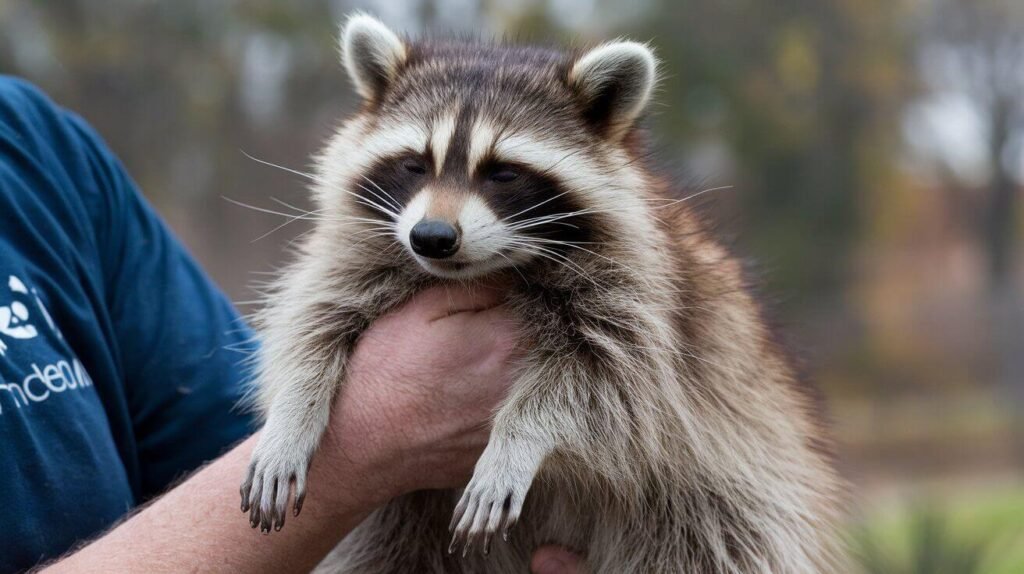
In captivity, a pet raccoon can live up to 20 years, although the average lifespan tends to be around 10 to 15 years with proper care. Like any long-lived pet, raccoons require ongoing commitment, including regular veterinary visits, proper nutrition, and a safe environment. The better the care you provide, the longer your pet raccoon will live.
Where to Get a Pet Raccoon? Is it illegal to own a raccoon in the UK?
In the UK, it is illegal to own a pet raccoon. Under the Dangerous Wild Animals Act 1976, raccoons are classified as a species requiring a special license to be kept as a pet. However, obtaining a license is rare and difficult, as raccoons are considered non-domestic animals with specific behavioral and care requirements. It’s essential to check local regulations if you’re considering owning one.
Where to Get a Pet Raccoon? Are there raccoon pets for sale?
Raccoons for sale can be found through various channels, including breeders, wildlife rescue organizations, and some exotic pet shops. However, it’s essential to exercise caution when buying a raccoon. Make sure to buy from a reputable breeder or organization to ensure the animal’s health and that the sale is legal. Avoid buying from unlicensed or unethical sources, as this could contribute to illegal wildlife trade or animal cruelty.
Where to Get a Pet Raccoon? How do I get a pet raccoon?
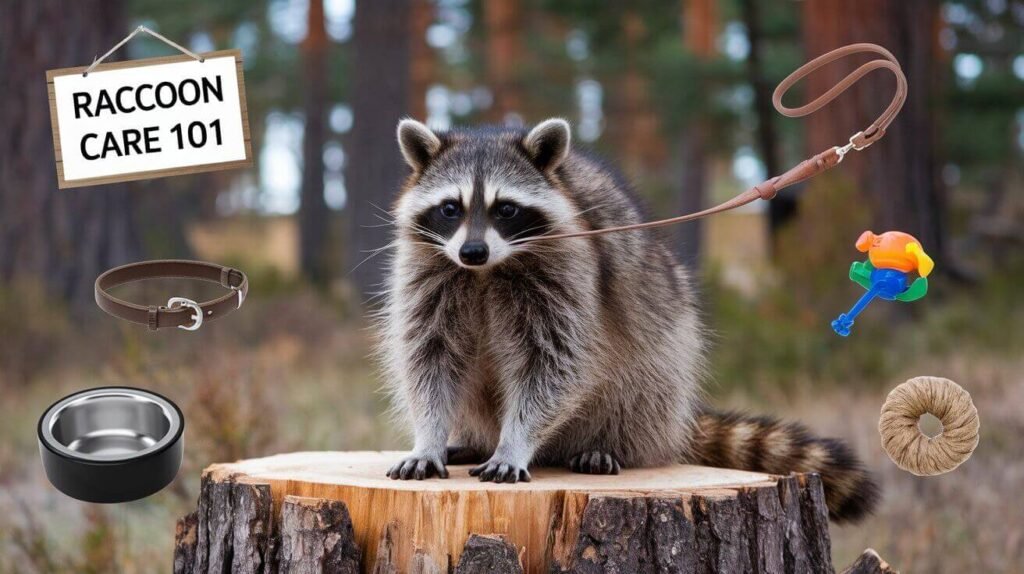
To get a pet raccoon, you must first confirm that owning one is legal in your area. Once you’ve checked the legal requirements, the next step is to find a licensed breeder or wildlife rescue organization that can responsibly place a raccoon in your care. In some cases, adoption through a sanctuary may be the best option, as they can provide animals that have been rehabilitated or orphaned.
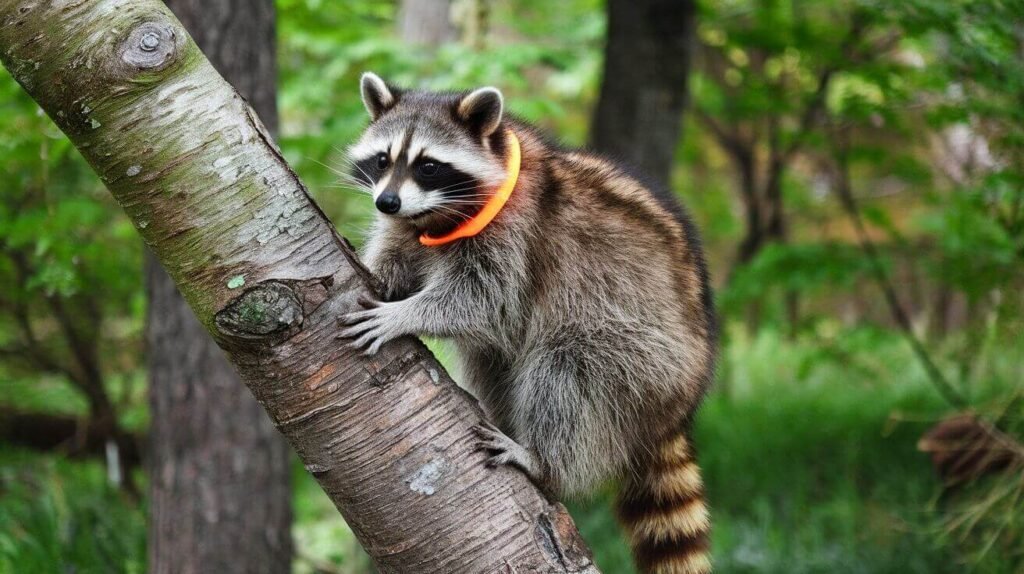
As with any location, it’s essential to confirm that owning a raccoon is legal in Lahore. If it is, you can search for reputable breeders or rescue organizations. Be sure to ask about the animal’s health and behavior, and ensure that they meet all necessary legal and ethical standards. Some online communities and forums might also have information about where to find raccoons in the Lahore area.
Where to get a pet raccoon near me?
If you’re looking to get a pet raccoon near your location, first check with your local authorities to ensure that owning one is legal. Afterward, search for licensed breeders or wildlife rescue organizations that specialize in exotic pets. Online forums or groups dedicated to pet raccoons may also offer valuable leads on where to find one near you.
Where to get a pet raccoon for free?
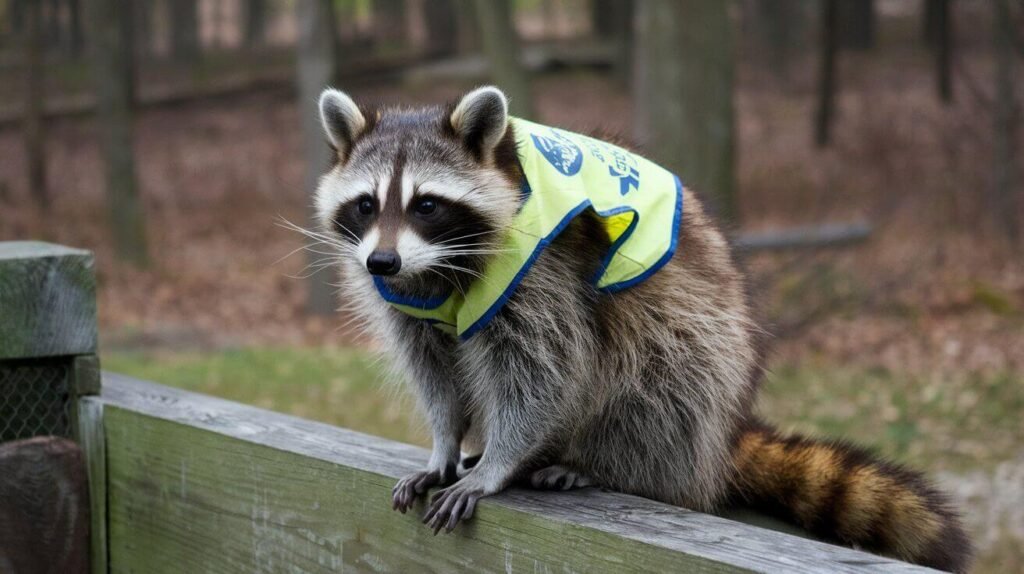
It is unlikely that you will find a pet raccoon for free, as they are not commonly given away due to the complexities of their care. However, you may be able to find raccoons available for adoption from wildlife rescues or sanctuaries, particularly if they have been orphaned or rescued from dangerous situations. Keep in mind that while you may not have to pay for the animal itself, there will still be significant costs for care and proper living conditions.
Are there raccoons for adoption near me?
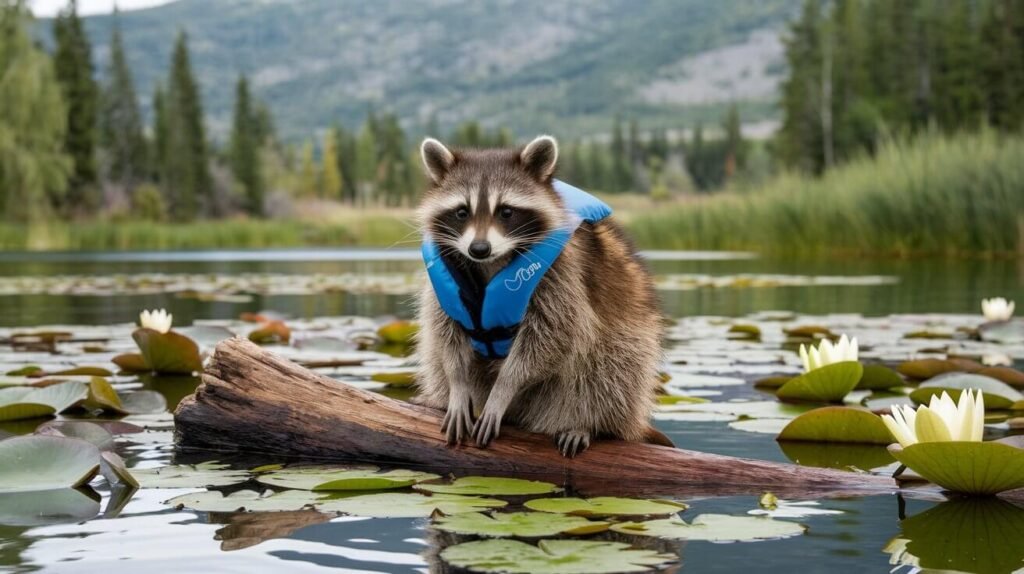
Yes, there may be raccoons available for adoption through wildlife rescues, sanctuaries, or organizations that specialize in rehabilitating animals. Adoption might be an ethical option if you are looking for a pet raccoon. Make sure to ask about the raccoon’s background, health, and any special care it may need.
Where to Get a Pet Raccoon? How to get a raccoon permit?
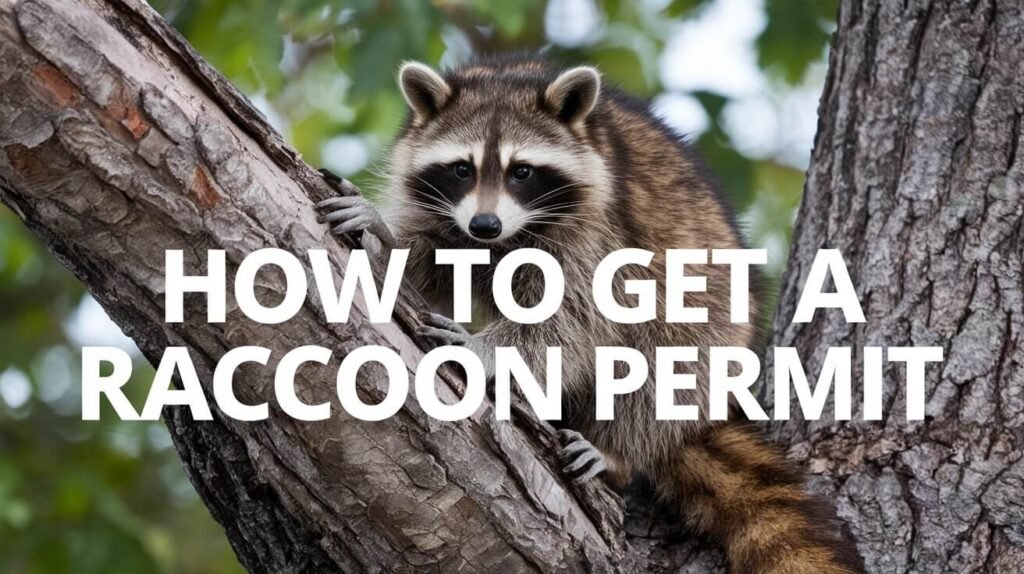
The process of obtaining a raccoon permit varies by location. Typically, you’ll need to apply through your local wildlife or animal control agency. You may be required to meet certain standards for housing, handling, and veterinary care. Additionally, you may need to provide proof of experience with exotic animals. Always check with your local authorities to understand the specific steps for obtaining a raccoon permit in your area.
Can I find a baby raccoon for sale on Craigslist?
While it is possible to find animals for sale on Craigslist, it is not advisable to purchase a baby raccoon through this platform. Craigslist can be an unregulated market, and buying an animal from an unknown source can be risky. Instead, opt for a reputable breeder or animal rescue organization to ensure that the raccoon is healthy, ethically sourced, and legal to own in your area.
Final Thoughts: Where to Get a Pet Raccoon?

Owning a pet raccoon is not something that should be rushed into. Before taking the leap, it’s essential to thoroughly research the responsibilities involved in caring for such a unique and wild animal. Raccoons are intelligent, curious, and often misunderstood, which is why they require a specific environment and specialized care.
If you do choose to bring a raccoon into your life, ensure you are fully prepared for the long-term commitment. These creatures are not domesticated pets like dogs or cats. They are wild animals that have been raised in captivity and, as such, retain many of the traits that make them part of the wild—like their tendency to forage, climb, and explore. This means their behavior can often be unpredictable, and they may not adapt well to typical household pet routines.
With that said, owning a pet raccoon can still be a deeply rewarding experience for those who have the knowledge, time, and dedication to meet their needs. Their inquisitive nature and bond with their human families can create a unique companionship. However, it’s important to keep in mind that not every person is suited for this responsibility, and the challenges of raising a raccoon should not be underestimated.
FAQs: Where to Get a Pet Raccoon?
1. Is it legal to own a pet raccoon?
The legality of owning a pet raccoon depends on where you live. Some states or countries prohibit keeping raccoons as pets, while others allow it with specific permits or licenses. Always check your local laws and regulations to ensure it’s legal before acquiring a pet raccoon.
2. Where can I get a pet raccoon?
Raccoons can be obtained from reputable breeders, wildlife rescues, or sanctuaries. It’s essential to choose a legal and ethical source. Avoid purchasing raccoons from exotic pet fairs or unlicensed breeders, as these animals may be mistreated or illegally obtained.
3. What should I know before getting a pet raccoon?
Before adopting a raccoon, make sure you understand the time, space, and financial commitment involved. Raccoons are wild animals and require specialized care, including a proper diet, habitat, and regular veterinary visits. Be prepared for the challenges of their mischievous behavior and potential health risks.
4. How do I care for a pet raccoon?
Caring for a pet raccoon involves providing a spacious and secure environment, a balanced diet of fruits, vegetables, proteins, and grains, and plenty of mental stimulation and enrichment activities. Raccoons are intelligent and curious, so engaging them with toys and puzzles is essential for their well-being.
5. What if I cannot afford a pet raccoon?
If owning a pet raccoon is financially unfeasible, consider volunteering at wildlife rescues or sanctuaries where raccoons are cared for. This allows you to interact with the animals without the long-term commitment and cost of owning one. You can also consider supporting wildlife conservation efforts to help raccoons in their natural habitats.
6. How can I ensure a pet raccoon stays healthy?
Routine veterinary care is essential to keep your pet raccoon healthy. Regular check-ups, vaccinations, parasite control, and ensuring proper nutrition will help prevent diseases and health problems. Find a veterinarian who specializes in exotic or wild animals for the best care.
7. What challenges should I expect when owning a pet raccoon?
Raccoons can be mischievous, intelligent, and sometimes destructive. They may get into things around the house and may need constant supervision to prevent accidents. Additionally, raccoons require a significant amount of space, both indoors and outdoors, to ensure they can engage in natural behaviors like climbing and foraging.
8. Can I train a pet raccoon?
Raccoons are highly intelligent animals and can be trained to some extent. However, they may not respond to training as predictably as domesticated animals. Positive reinforcement techniques, such as treats and praise, can help in training them for basic behaviors, but it’s important to be patient and consistent.
9. What do I do if my pet raccoon escapes?
If your pet raccoon escapes, act quickly to retrieve it safely. Make sure your home and outdoor enclosures are secure and escape-proof. Raccoons are excellent climbers and can squeeze through small openings, so ensure there are no gaps or weak spots in their habitat.
10. Are raccoons good pets for children?
Raccoons can be good pets for families with older children who understand how to interact with them safely and respectfully. However, raccoons are wild animals and can sometimes exhibit aggressive behavior or become territorial. Always supervise interactions between children and pets to ensure safety.
11. What if my pet raccoon becomes sick?
If your raccoon shows signs of illness, contact a veterinarian with experience in treating exotic or wild animals immediately. Symptoms like lethargy, loss of appetite, vomiting, or diarrhea should not be ignored, as they could be signs of a serious health issue.
12. Can I keep a raccoon in my home?
Yes, but it’s crucial to provide a proper environment for a pet raccoon. They need a lot of space to roam, climb, and explore. Additionally, they require regular interaction and mental stimulation to stay happy and healthy. You’ll also need to ensure that their habitat is secure, as raccoons are known for their ability to escape enclosures.
13. How long do pet raccoons live?
Raccoons can live up to 20 years in captivity with proper care. However, they require a long-term commitment, and their needs change as they grow. Be prepared for a lifelong responsibility if you decide to adopt a raccoon as a pet.
14. Can I keep a raccoon and a dog or cat together?
Raccoons can sometimes get along with other pets, but it depends on the individual animals and their temperaments. It’s important to introduce them slowly and monitor their interactions. Raccoons can be territorial and may exhibit aggressive behaviors if they feel threatened, so supervision is necessary.
15. What are the ethical considerations of owning a pet raccoon?
Before obtaining a pet raccoon, it’s important to consider the ethical implications. Raccoons are wild animals, and their natural instincts may not align well with life in captivity. Consider adopting from a rescue organization rather than buying from a breeder, and ensure you’re providing an environment that meets their physical and psychological needs.
How to Sue Amazon: 6 Powerful Reasons to Sue Today
If you’ve had an issue with Amazon that cannot be resolved through customer service or other means, you may be…
Is Home Defense Safe for Pets? 4 Best Practices to Use Home Defense Products Around Pets
Keeping your home free from pests is essential, but for pet owners, ensuring that pest control products are safe for…
Why Is Amazon So Slow to Ship? 8 Powerful Factors
Amazon has long been celebrated for its swift delivery times, offering Prime members the luxury of next-day or even same-day…
How to Calculate Occupancy of a Charter Business? 3 Powerful Steps to Calculate
In the charter business, whether you operate boats, buses, private jets, or other vehicles, occupancy is a crucial metric that…

Get Personal Construction Robots in Factorio Outside the Network: Enjoy Effortless Building in Factorio with 3 Simple Steps
How to get personal construction robots in Factorio outside the network is a question many players ask as they look…
A-Frame Home Decorating Ideas: 2 Unique Features to Love
A-Frame Home Decorating Ideas…
How to Sue Amazon: 6 Powerful Reasons to Sue Today
If you’ve had an issue with Amazon that cannot be resolved through customer service or other means, you may be…
Is Home Defense Safe for Pets? 4 Best Practices to
Keeping your home free from pests is essential, but for pet owners, ensuring that pest control products are safe for…
Why Is Amazon So Slow to Ship? 8 Powerful Factors
Amazon has long been celebrated for its swift delivery times, offering Prime members the luxury of next-day or even same-day…
How to Calculate Occupancy of a Charter Business? 3 Powerful
In the charter business, whether you operate boats, buses, private jets, or other vehicles, occupancy is a crucial metric that…

Get Personal Construction Robots in Factorio Outside the Network: Enjoy
How to get personal construction robots in Factorio outside the network is a question many players ask as they look…
A-Frame Home Decorating Ideas: 2 Unique Features to Love
A-Frame Home Decorating Ideas…

